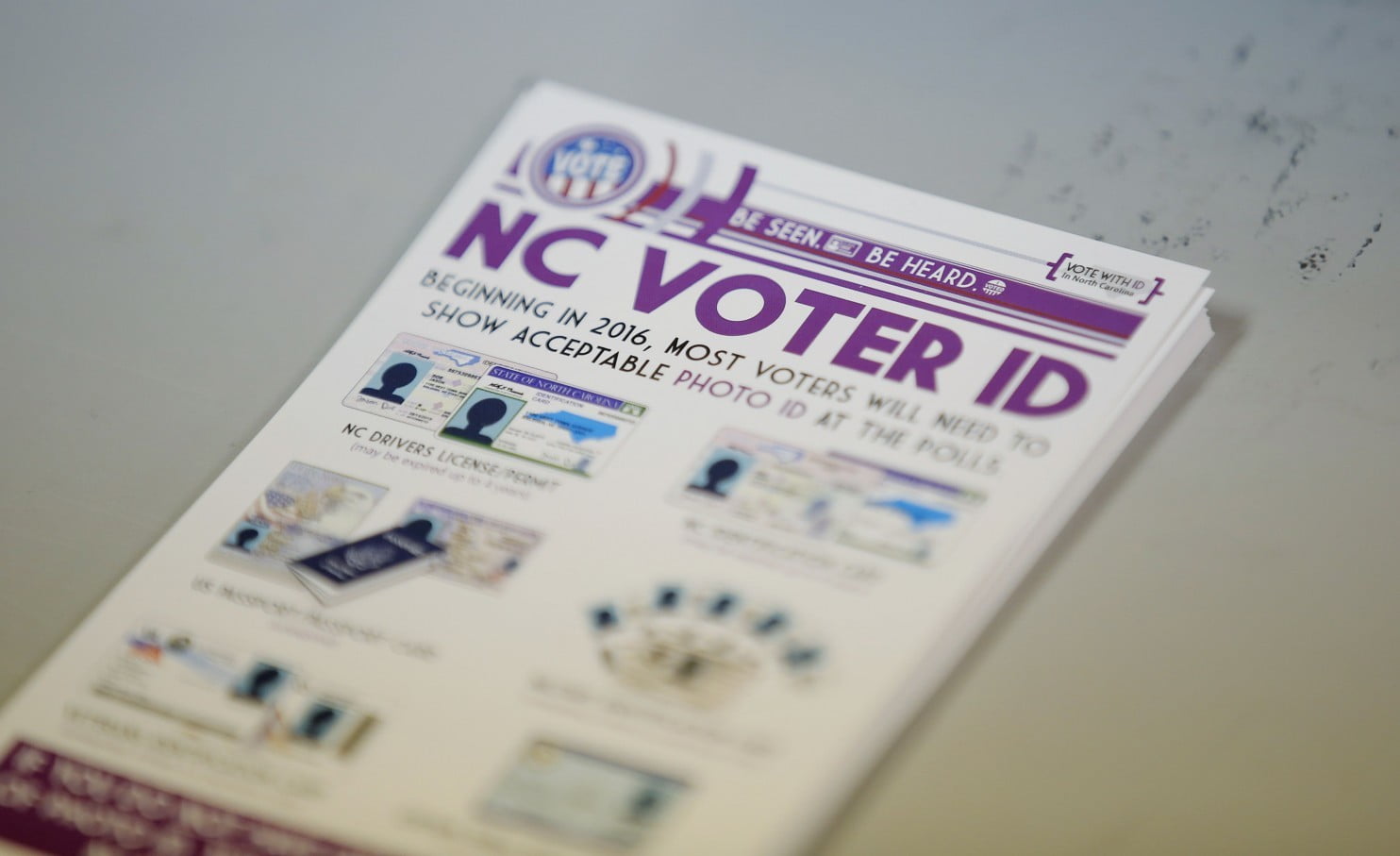
A federal appeals court on Friday struck down North Carolina’s requirement that voters show identification before casting ballots and reinstated an additional week of early voting, finding that legislators had acted with “discriminatory intent” in imposing strict election rules.
The decision by a three-judge panel of the U.S. Court of Appeals for the 4th Circuit was an overwhelming victory for the Justice Department and civil rights groups that argued the measures were designed to dampen the growing political clout of African American voters, who participated in record numbers in elections in 2008 and 2012.
“We can only conclude that the North Carolina General Assembly enacted the challenged provisions of the law with discriminatory intent,” Judge Diana Gribbon Motz wrote for the panel.
North Carolina’s Republican legislative leaders issued a fiery joint statement in response and said they will appeal the decision to the Supreme Court.
“Since today’s decision by three partisan Democrats ignores legal precedent, ignores the fact that the other federal courts have used North Carolina’s law as a model, and ignores the fact that a majority of other states have similar protections in place, we can only wonder if the intent is to reopen the door for voter fraud, potentially allowing fellow Democrat politicians like Hillary Clinton and Roy Cooper to steal the election,” Senate Leader Phil Berger and House Speaker Tim Moore said in the statement. “We will obviously be appealing this politically-motivated decision to the Supreme Court.”
It was the third important victory this month for opponents of restrictive voting laws, which are being challenged around the country ahead of November’s presidential election. North Carolina is considered a key swing state, where African-American voters have played an increasing role in making it competitive.
The decision by the Richmond-based court on Friday reverses a lower-court ruling that upheld the voting measures passed in 2013. North Carolina lawmakers overhauled the state’s election law soon after the Supreme Court got rid of a requirement that certain states with a history of discrimination receive approval before changing voting rules.
North Carolina legislators eliminated same-day voter registration, rolled back a week of early voting and put an end to out-of-precinct voting. The appeals court ruling reinstates those provisions that civil rights groups, led by the state NAACP, said were used disproportionately by African-American voters.
“The court seems to have missed the forest in carefully surveying the many trees. This failure of perspective led the court to ignore critical facts bearing on legislative intent, including the inextricable link between race and politics in North Carolina,” Motz wrote.
“The law required in-person voters to show certain photo IDs, beginning in 2016, which African Americans disproportionately lacked,” she continued. “And eliminated or reduced registration and voting access tools that African Americans disproportionately used.
The court, however, did not go so far as to return North Carolina to federal supervision under the Voting Rights Act.
Voting rights advocates applauded the ruling and said it sent a strong message to legislatures throughout the country.
Allison J. Riggs of the Southern Coalition for Social Justice, who argued on behalf of the League of Women Voters, called it “a strong rebuke to the General Assembly’s attempt to restrict political participation. Because of the ruling, she said, “North Carolinians will now be able to register and vote free of the obstacles created by the Legislature in 2013.”
The North Carolina Attorney General’s office did not respond immediately about whether the state would appeal the ruling. Gov. Pat McCrory (R), who supports the law, has said it would help prevent voter fraud.
In its 78-page ruling, the court said the state had “offered only meager justifications” in response to claims of intentional discrimination.
The provision requiring identification, the court said, is too broad and seemingly unrelated to the goal of combating fraud.
During oral arguments in June, the two other judges on the panel — James A. Wynn Jr. and Henry F. Floyd — remarked on the timing of the changes to the law and on comments from a state senator who said lawmakers were no longer restrained by the “legal headache” of the Voting Rights Act.
The timing “looks pretty bad to me,” Floyd said, prompting murmurs of agreement from the courtroom packed with opponents of the law, some of whom traveled from North Carolina to the Richmond-based appeals court.
Justice Department attorney Anna Baldwin told the court during oral argument that as a result of North Carolina’s election rules, thousands of voters were “shut out of the political process” in 2014. About 1,600 ballots cast in the wrong precincts were not counted. An additional 12,000 people were unable to register to vote on the same day as the election.
In April, a lower-court judge rejected the argument of opponents that the legislature had intentionally discriminated against minority voters and that large numbers would be disenfranchised by the changes to the voting system.
Lawyers representing the state pointed out that overall African American participation increased in 2014. Lawmakers also amended the measure a week before it was scheduled to be tested at trial to allow voters to cast ballots without an ID if they submit affidavits attesting to “a reasonable impediment,” including a lack of a birth certificate or transportation.
North Carolina was one of 17 states set to have more-restrictive voting laws in place for this presidential election than they had for the prior one. Laws in several states, including Wisconsin, Texas and Virginia, also are being challenged in court.
In Wisconsin, a federal judge ruled that voters who lack the specific kind of identification the state requires be allowed to vote in November by signing an affidavit as to their identity. Judge Lynn S. Adelman said the law—the subject of legal battles since it was passed five years ago by the state’s Republican legislature and signed by Gov. Scott Walker (R)—would exclude qualified voters.
The state has appealed the ruling.
And then the entire U.S. Court of Appeals for the 5th Circuit ruled that Texas’s strict voter-ID law discriminates against minority voters, and it ordered a lower court to come up with a fix for the law in time for the November elections.
The appeals court, one of the most conservative in the country, declined to strike down the law completely but said provisions must be made to allow those who lack the specific ID the law requires to be able to cast a vote. The state has decided not to appeal that ruling to the Supreme Court, and a district judge is to rule soon on what accommodations must be made.
[Source:- The Washington Post]



